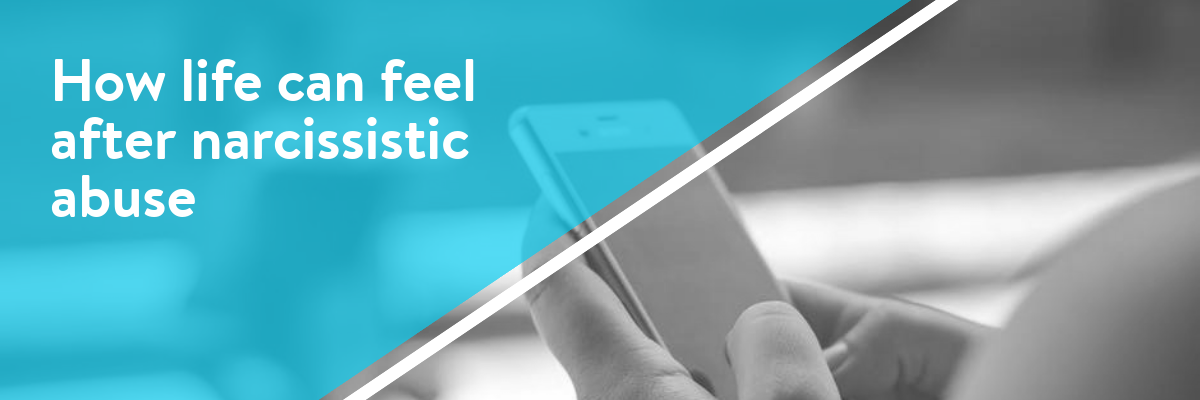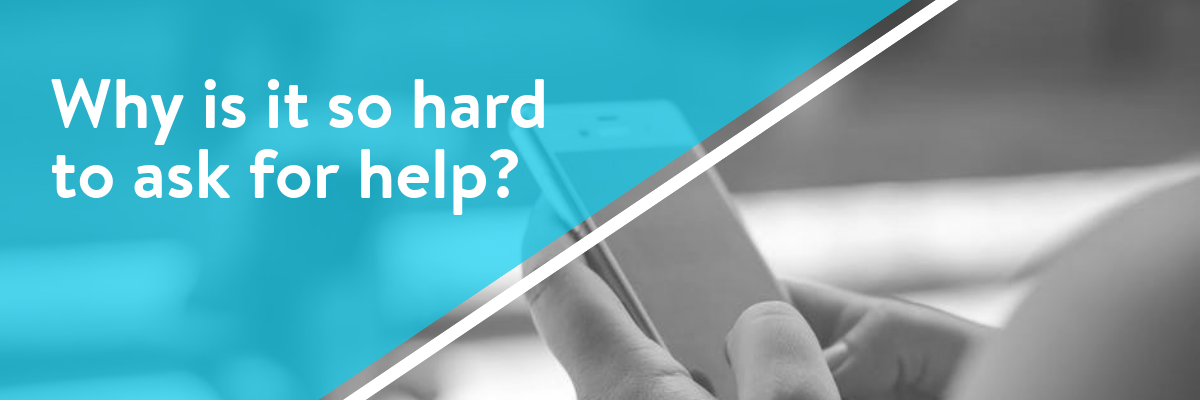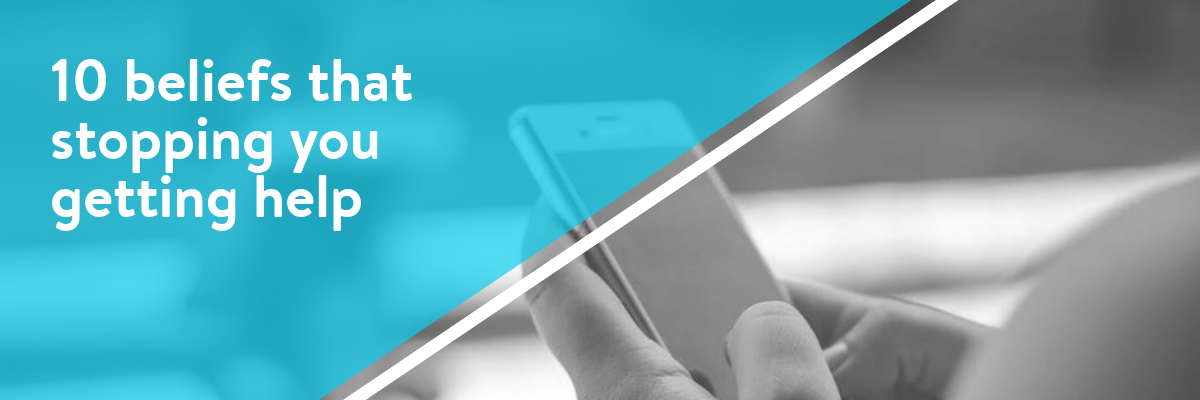You say to yourself:
It’s not that bad. These difficulties you have with mum or dad could be worse. Maybe it’s you, not them. Maybe you’re imagining things.
If you’ve experienced parental narcissistic abuse or emotional neglect, it’s really hard to find your internal compass.
So what can you do? Well being here is a great start.
This post will help you to understand:
- Why it’s so hard for a survivor of narcissistic abuse to ask for help
- The 10 type of barriers you put up to asking for help
- Simple ways you can begin to get the support you need to move forwards in your life
What happens first
So:
When you start to feel there might be something amiss, you feel awash with guilt. That thinking this way is inherently bad. A kind of betrayal.
Any time you voice the idea that the perfect childhood or family isn’t the full story to your sibling, you’re immediately shut down or contradicted. It feels like dangerous territory to explore.
Forget about saying anything to mum or dad. That’s a minefield of denial or recrimination waiting to detonate.
 How life can feel after narcissistic abuse
How life can feel after narcissistic abuse
And yet:
life doesn’t feel quite as it should. You feel alone, on the outside. Not quite sure what the rules are or how to play by them.
You find yourself always trying to please others. That saying no is harder than it should be. Your self-confidence and self-esteem have taken a battering.
You rarely allow yourself to feel angry, but once in a while the lid blows of you and you let rip. The aftermath is full of self-doubt and shame.
It’s hard to know who you are and what you really stand for at times. You give yourself a hard time for any slip-up or mistake.
This is a hard way to live your life, even if it’s the only way you know.
The things is:
In amongst all the confusion and second guessing, there’s also another voice trying to get heard.
That maybe there is more of a life to be lived. That you can really listen to your heart and find a way of connecting others.
 Why is it so hard to ask for help?
Why is it so hard to ask for help?
So here’s the big question:
Why is it so hard to ask for help?
Well, if you were parented by a narcissist or emotionally neglected, you’ve been wired to push away help.
If you were parented by a narcissist or emotionally neglected, you’ve been wired to push away help #parentalnarcissisticabuse Share on XThere are at least 10 beliefs that will get in the way of you seeking out help, whether it’s a friend’s or that of a professional.
 10 beliefs that stopping you getting help
10 beliefs that stopping you getting help
1 You don’t feel this hurt is that serious
Minimising your experiences, telling yourself it’s not a big deal is a great way of keeping help at bay. There’s probably a part of you that feels differently, because you’re reading this now. But for the hurt part of you, paradoxically, denying the hurt feels safer than giving it attention.
2 Others’ troubles are far worse than yours
It’s easy to compare your suffering to others’ and feel that yours is not equal. Not acknowledging your hurts or taking them seriously is a great way of distancing yourself from your experience.
Put bluntly, suffering is not a competitive sport. Your suffering can not be measured against anyone else’s. It deserves to be attended to and honoured for what it is. Period.
3 You’re used to fixing stuff on your own
If you’ve experienced emotional neglect or narcissistic abuse, there’s a strong chance you are strongly independent and find a way through the tough and not so tough times by yourself.
That can be a real gift. But it might be also because it feels unsafe to be vulnerable with others. There is a lingering fear that when you open up, it just leads to bad things. Being taken advantage of, shamed, humiliated or belittled. You quickly learn it’s better to sort stuff out by yourself when that’s the case.
4 No one would really understand or believe it’s that bad
When you’re on the inside of the experience, it’s hard to believe anyone would understand or give credence to your experience. This is particularly true of narcissistic emotional abuse.
From the outside, your parent might seem an ideal and wonderful parent (which, in some respects may actually be true.)
But emotional abuse is often covert.
It takes the form of subtle emotional manipulation. It goes under the guise of being ‘a good child’ or a ‘compliant achiever.’ No wonder so many people experiencing parental narcissistic abuse become people pleasers. To their very core, they know it as a way of keeping the peace, getting affirmation and a very distorted form of love.
Ask yourself this:
Does something feel wrong about your childhood? Is it hard to connect some of the threads of what happened? Or even harder to remember much at all of your childhood?
Then, that’s where your truth is.
5 You feel weak and stupid asking for help
It’s incredibly hard for someone who’s experienced emotional neglect or narcissistic abuse to ask for help for all the reasons here.
But it’s particularly so, because of what you might tell yourself about asking for help.
Asking for help, to your inner critical voice, will be a sign of weakness and failure. Something to be avoided at all costs.
The reason why?
Asking for help makes your vulnerable. For your child self, that might feel incredibly risky.
Admitting you needed help or even worse asking for it from a parent who was unable to empathise or connect with your reality was like stepping into the emotional desert.
There was no life in that place. Just arrid and endless abandonment.
6 You feel guilt and betrayal towards your parent
A further repercussion of this inner attack is a corrosive feeling of guilt towards your parent.
Saying anything against them, as a chlld, would probably have been met either with
fury, counter attack or cold silences.
To stay emotionally and physically safe enough, you had to stay on side. Any transgression was highly risky.
So now, to even consider talking of your parent in anything but positive terms, might fill that child part of you with the deepest dread and fear of betrayal.
7 It feels way too scary to open up
When you’ve spent a lifetime shutting down on your impulse to speak your truth, you start to lose sight of what that truth is.
So many people coming to work with me say they don’t really know who they are or what they believe any more. There sense of self is so alienated and hidden.
Dismantling the masks of confidence, self-protection and invuinerability that you’ve had to develop to stay safe, can feel the scariest thing ever.
Why would you lay yourself open to that?
Well, ultimately, in your own time, and with a deep sense of trust, I have to tell you, it’s the only way through.
You can’t avoid it, and, my guess is, actually this is what you long for. Meaningful, deep, intimate connection with others. Safely.
That’s at the heart of any healing work you do.
8 You don’t trust other people to be safe
When you’ve experienced parental narcissistic abuse, it’s incredibly hard to trust that others have your best interests at heart.
Even if you know this isn’t true intellectually, that young part of you will be deeply cautious about letting anyone get too close, without developing their trust.
9 There isn’t much to say
Sometimes, particularly when childhood memories are vague and seemingly absent, there is a fear that you have nothing meaningful to say.
I want to reassure you that there is no wrong way to do this healing work. You don’t have to have endless stories of childhood pain, though if you do that’s helpful too.
For some, the healing work is mainly done through the body and sense. For others it’s done through their present day relationships. Anything goes and all roads lead to the same place:
The deepest longing of your heart, to be heard, seen and loved.
10 You shouldn’t need to get help
Hopefully by now, you’ve got the idea that there is a part of you who will be saying no in a big way to any idea of help. That vulnerability and fear of pain, can stand in the way of getting help.
But if you’re here, I also know another part of you is longing for change, release and relief. As soon as you hear the word ‘should’ be on alert. It’s probably that critical part of you judging you for opening up, which is just trying to keep you safe.
 What can you do to help yourself?
What can you do to help yourself?
So by now, you’ll see that you may be putting some strong obstacles in your own way of getting help.
Of course, you don’t have to get help at all, if you feel you don’t need it and can get through this alone.
So what can you do?
You’ll read this often, if you follow my blog. The first step is recognising this painful reality for yourself and choosing, as far as you can, as much as you can, the path of self-compassion.
None of this is your fault, even if at the core you feel it is.
None of this is your fault, even if at the core you feel it is. #parentalnarcissisticabuse Share on XIf you’re resistant to getting help, take a moment and ask yourself, why,
If you’re resistant to getting help, take a moment and ask yourself, why, #parentalnarcissisticabuse Share on XIf it’s one of the 10 reasons above, then see if you can bring that into your awareness and gently challenge yourself with the question ‘Is this true? Is this really true’?
If it is, fair enough.
If you feel ready to get support
If it isn’t true, maybe it’s time to look out for some other help. You deserve it. And this journey is so much easier in the company of someone else who understands and knows how to guide you through.
Get in touch by calling or texting me on 07443 640556 or emailing me to arrange a free 15 minute initial consultation on the phone.
